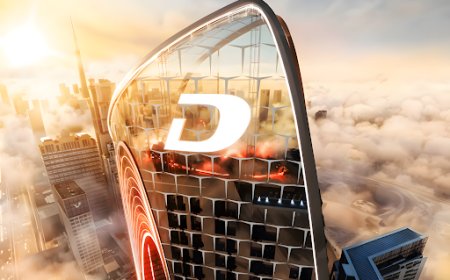EPR Services: Leading the Fight Against Environmental Pollution - DCC Group
EPR stands for extended producers’ responsibility i.e brand owners, importers, producers, or manufacturers are responsible for the treatment and disposal of their post-consumer products.

Indias environmental landscape is under siege, with over 62 million tonnes of municipal solid waste (MSW) generated annually, including 9.46 million tonnes of plastic waste, according to CPCB data. Only 12% of this waste is effectively recycled, leaving landfills overflowing and contributing to methane emissions, leachate pollution, and marine contamination. Extended Producer Responsibility (EPR) has emerged as a transformative framework, holding producers accountable for managing their products end-of-life disposal. DCC Group, a pioneer in epr waste management, is leading the fight against environmental pollution through comprehensive epr services, specializing inepr plastic waste managementandepr for plastic waste. By aligning with Indias Plastic Waste Management Rules and Swachh Bharat Mission (SBM) 2.0, DCC is driving a sustainable future in 2025.
The Plastic Waste Crisis and EPRs Role
Plastic waste, particularly single-use plastics and packaging, constitutes a significant portion of Indias MSW, clogging landfills and polluting water bodies. The Plastic Waste Management Rules, 2016 (amended 2021), mandate epr in waste management, requiring producers, importers, and brand owners (PIBOs) to ensure the collection, recycling, or safe disposal of their plastic products. EPR shifts the responsibility from municipalities to producers, encouraging eco-friendly product design and robust waste management systems. DCC Groups epr services address this crisis by providing end-to-end solutions for epr plastic waste management, reducing landfill dependency and mitigating environmental harm.
DCC Groups EPR Services: A Holistic Approach
DCC Groups epr waste management solutions are designed to help PIBOs meet regulatory requirements while advancing sustainability. Their epr services encompass collection, segregation, recycling, and disposal of plastic and other waste, ensuring compliance with Indias EPR portal. The process integrates advanced technologies and strategic partnerships to maximize efficiency:
-
Waste Collection: DCC collaborates with ULBs, waste aggregators, and industries to collect plastic waste from households, commercial spaces, and dumpsites. Their network ensures comprehensive coverage across urban and rural India.
-
Segregation and Sorting: Using state-of-the-art material recovery facilities (MRFs), DCC employs waste sorting machines like trommels, ballistic separators, and NIR sensors to segregate plastics into PET, HDPE, and LDPE with 95% accuracy. This precision enhances epr plastic recycling efficiency.
-
Recycling and Processing: Recyclable plastics are processed into granules or flakes for manufacturing new products, supportingepr for plastic waste. Non-recyclable plastics are converted into refuse-derived fuel (RDF) for industrial use, reducing fossil fuel dependency.
-
Safe Disposal: Minimal residual waste is disposed of in engineered landfills, adhering to CPCB guidelines, ensuring environmentally sound epr waste management.
DCCs epr plastic waste management includes biomining legacy dumps, such as Ghazipur, where 15 lakh tonnes of waste were processed, recovering plastics and reclaiming land. Their bioculture spray facilities further enhance organic waste decomposition, reducing contamination in plastic streams.
Benefits of DCCs EPR Services
DCC Groups epr services deliver significant environmental, economic, and social benefits:
-
Reduced Landfill Waste: By recycling up to 80% of collected plastics, DCCs epr plastic waste management minimizes landfill use, reducing methane emissions and leachate pollution. Their biomining projects reclaim land for urban development.
-
Resource Recovery:EPR for plastic wasterecovers high-value materials for industries, supporting a circular economy. RDF production powers cement kilns, saving 0.54 tonnes of CO2 per tonne of RDF, per industry estimates.
-
Environmental Protection: Efficient epr waste management prevents marine and soil pollution, aligning with Indias ban on single-use plastics. Dust suppression systems complement their efforts, improving air quality.
-
Economic Opportunities: EPR services create jobs in collection, sorting, and recycling, with Indias waste sector employing over 175,000 workers in 2020. They also lower compliance costs for PIBOs.
-
Regulatory Compliance: DCC ensures PIBOs meet EPR targets, avoiding penalties and enhancing corporate social responsibility.
Challenges and Innovations
Implementing epr in waste management faces challenges, including high infrastructure costs, inconsistent source segregation, and complex compliance requirements. DCC addresses these with modular MRFs and cost-effective sorting technologies. Their AI-driven systems, using hyperspectral imaging, achieve near-99% sorting accuracy, while IoT-enabled monitoring optimizes operations. Community awareness campaigns promote at-source segregation, improving waste quality for epr plastic waste management.
DCCs mobile processing units enable on-site waste management, reducing transportation emissions. Their exploration of chemical recycling for non-recyclable plastics complements mechanical recycling, enhancingepr for plastic waste. Partnerships with ULBs and industries ensure a robust supply chain for recycled materials, strengthening the circular economy.
DCC Groups Vision for 2025
In 2025, DCC Group is scaling its epr services to meet the growing demand from over 2,000 registered PIBOs on Indias EPR portal. They aim to process 50% more plastic waste annually, expanding their network of MRFs and biomining projects. Their Delhi plant, handling 2,000 tonnes daily, serves as a model for scalable epr waste management. By integrating advanced technologies and fostering public-private partnerships, DCC aligns with SBM 2.0s goal of garbage-free cities by 2026.
DCCs focus on innovation includes developing low-energy processing systems and microbial solutions for faster waste stabilization. Their biomining initiatives, like Bodinayakanur, which reclaimed 3.05 acres, demonstrate their commitment to land reclamation and pollution reduction. These efforts position DCC as a global leader in sustainable waste management.
A Cleaner, Greener India
DCC Groupsepr servicesare redefining the fight against environmental pollution in India. Through meticulous epr plastic waste management,epr for plastic waste, and comprehensive epr waste management, they transform plastic waste into resources, reducing landfill waste and supporting a circular economy. Aligned with SBM 2.0 and global sustainability goals, DCCs innovative approach proves that producer accountability can drive environmental progress. As India strives for a landfill-free future by 2026, DCC Groups leadership in epr in waste management is paving the way for a cleaner, greener planet in 2025.







































